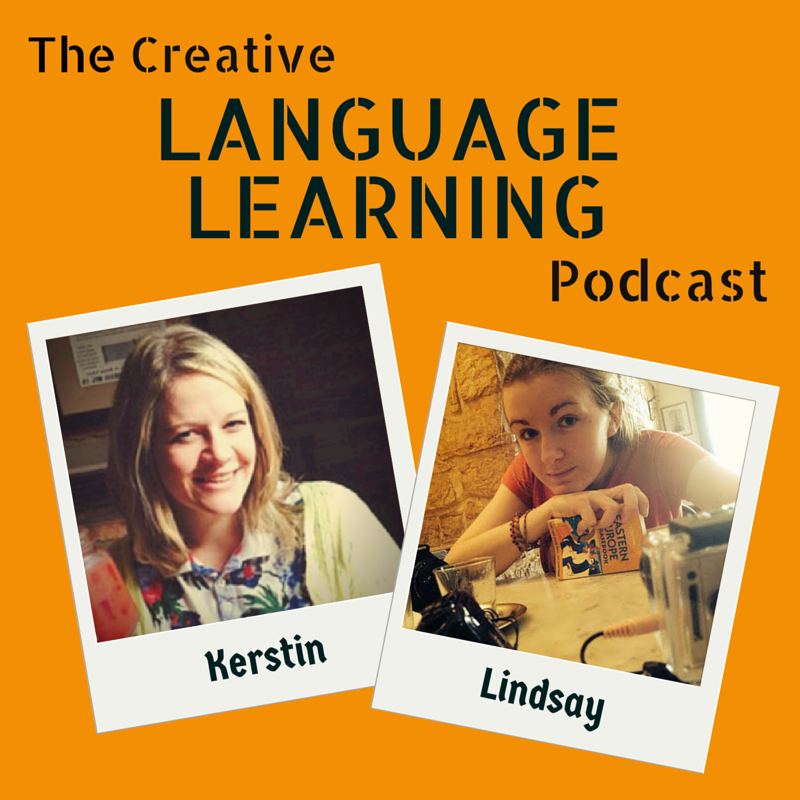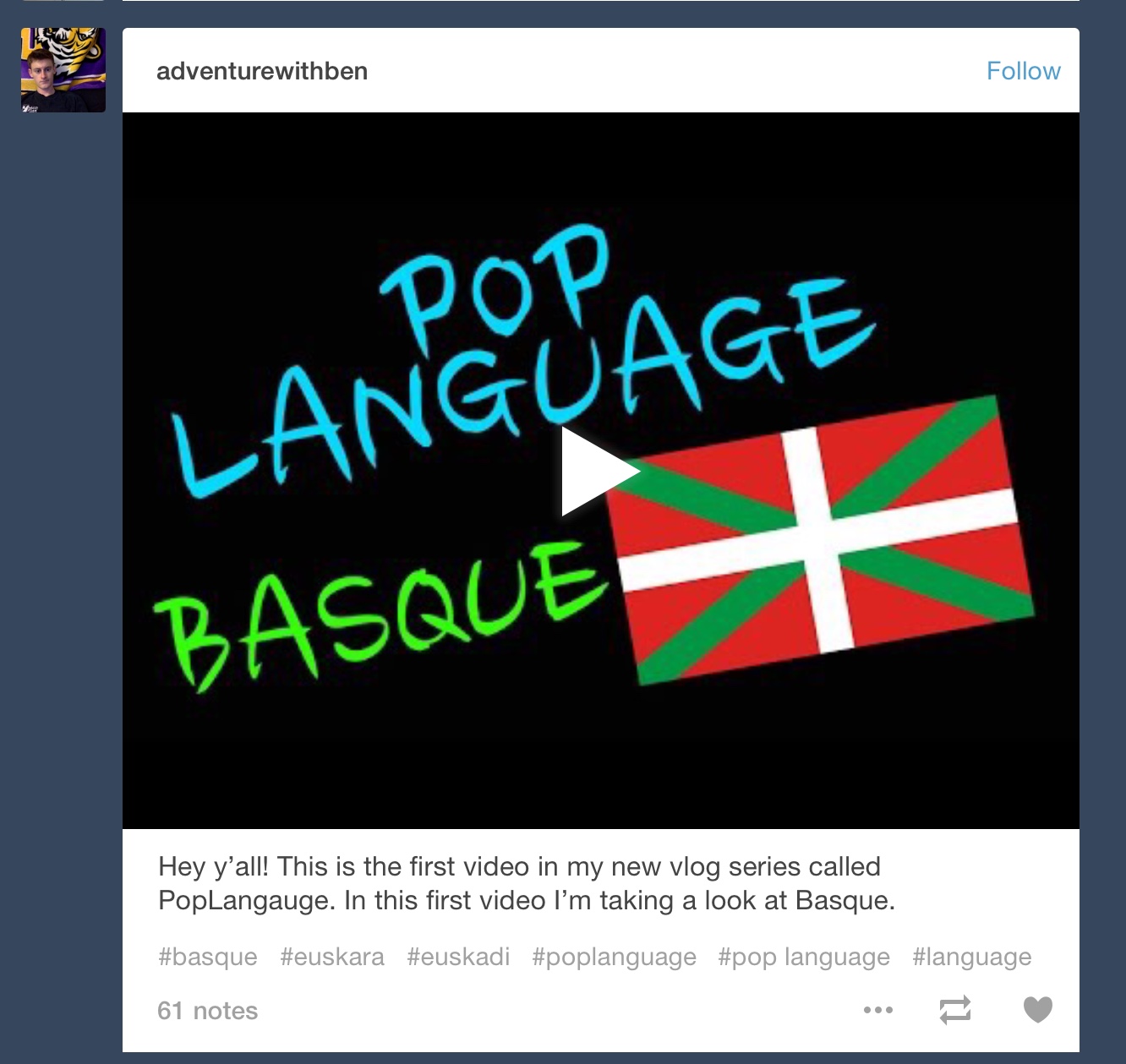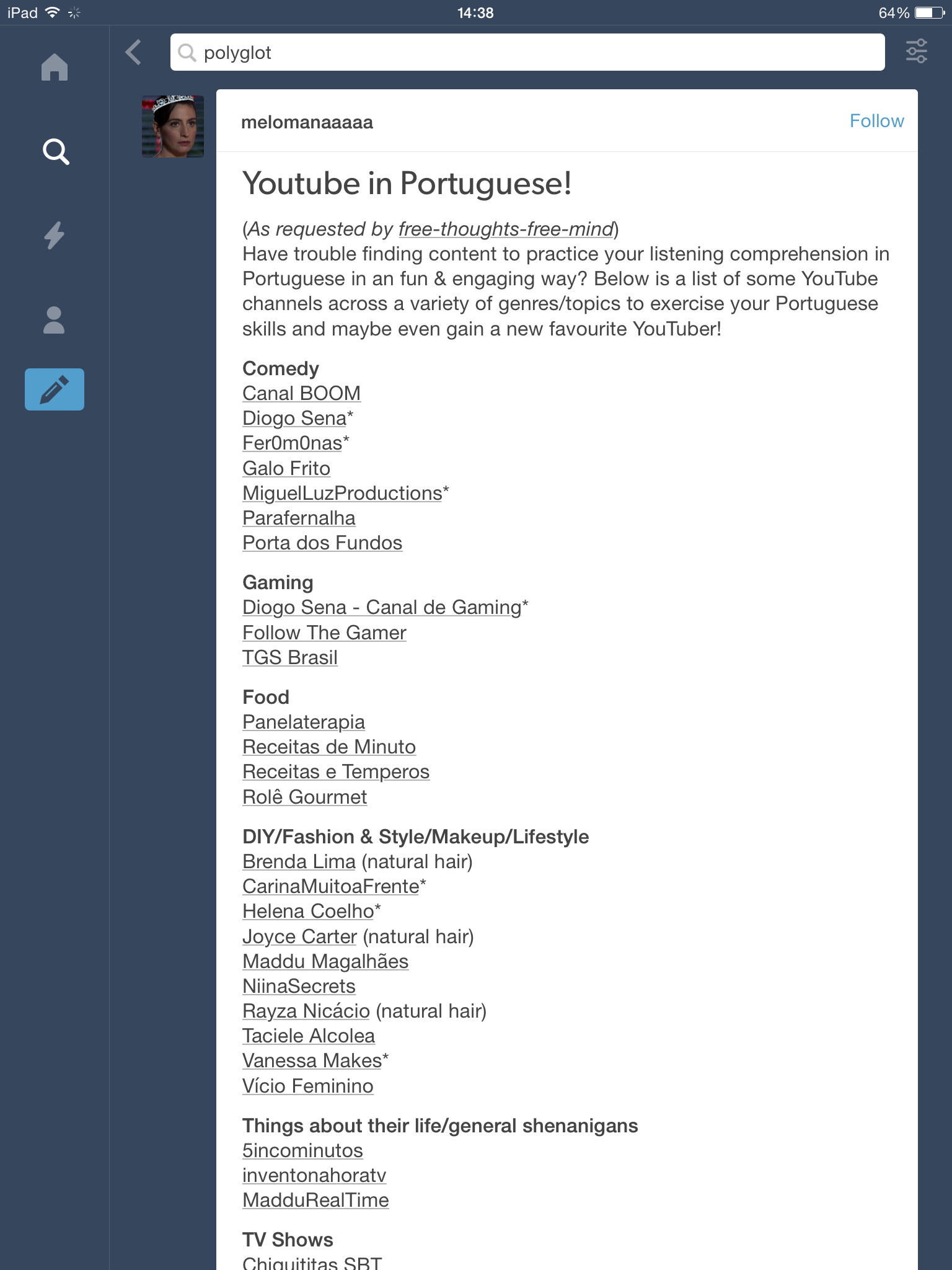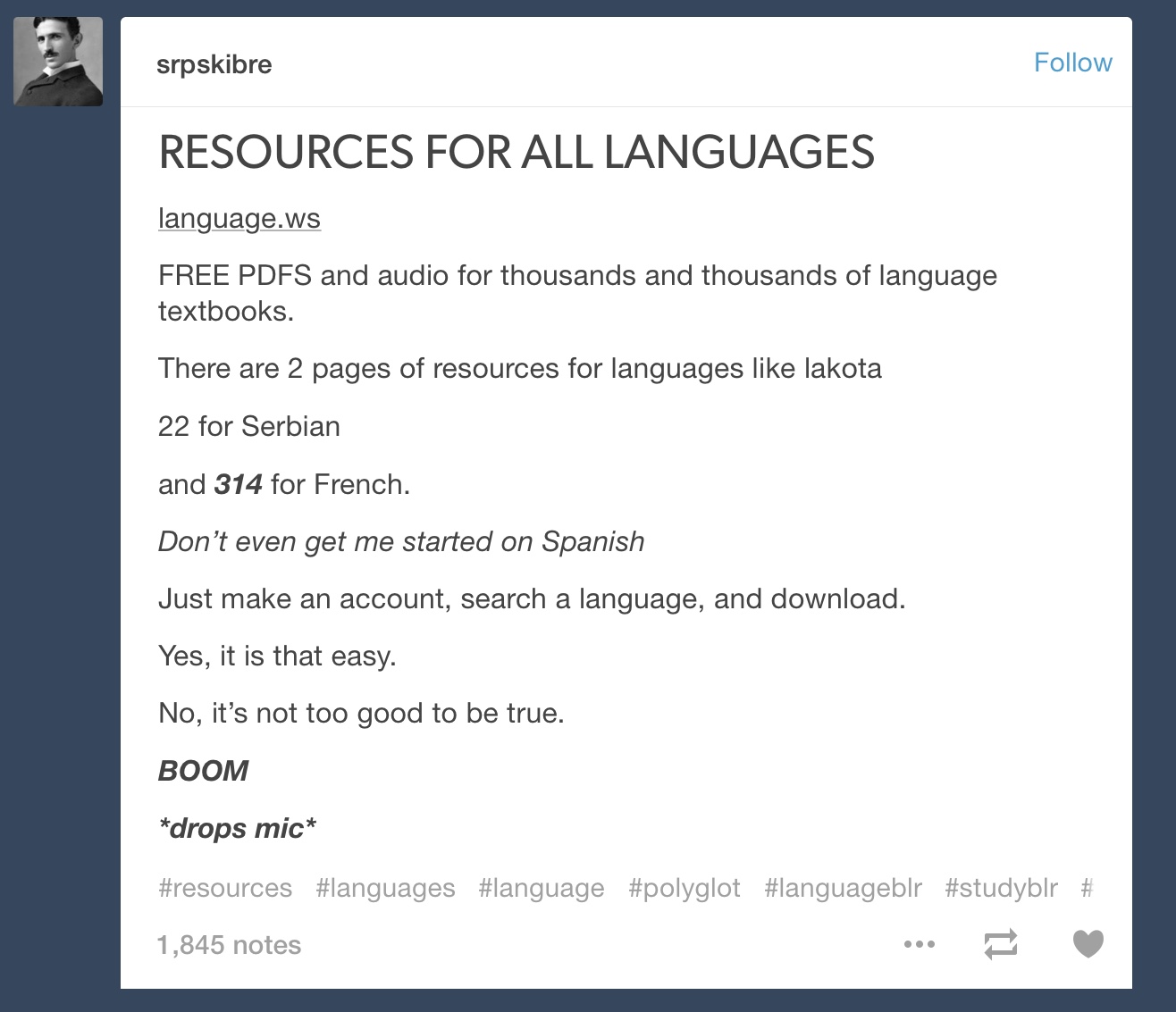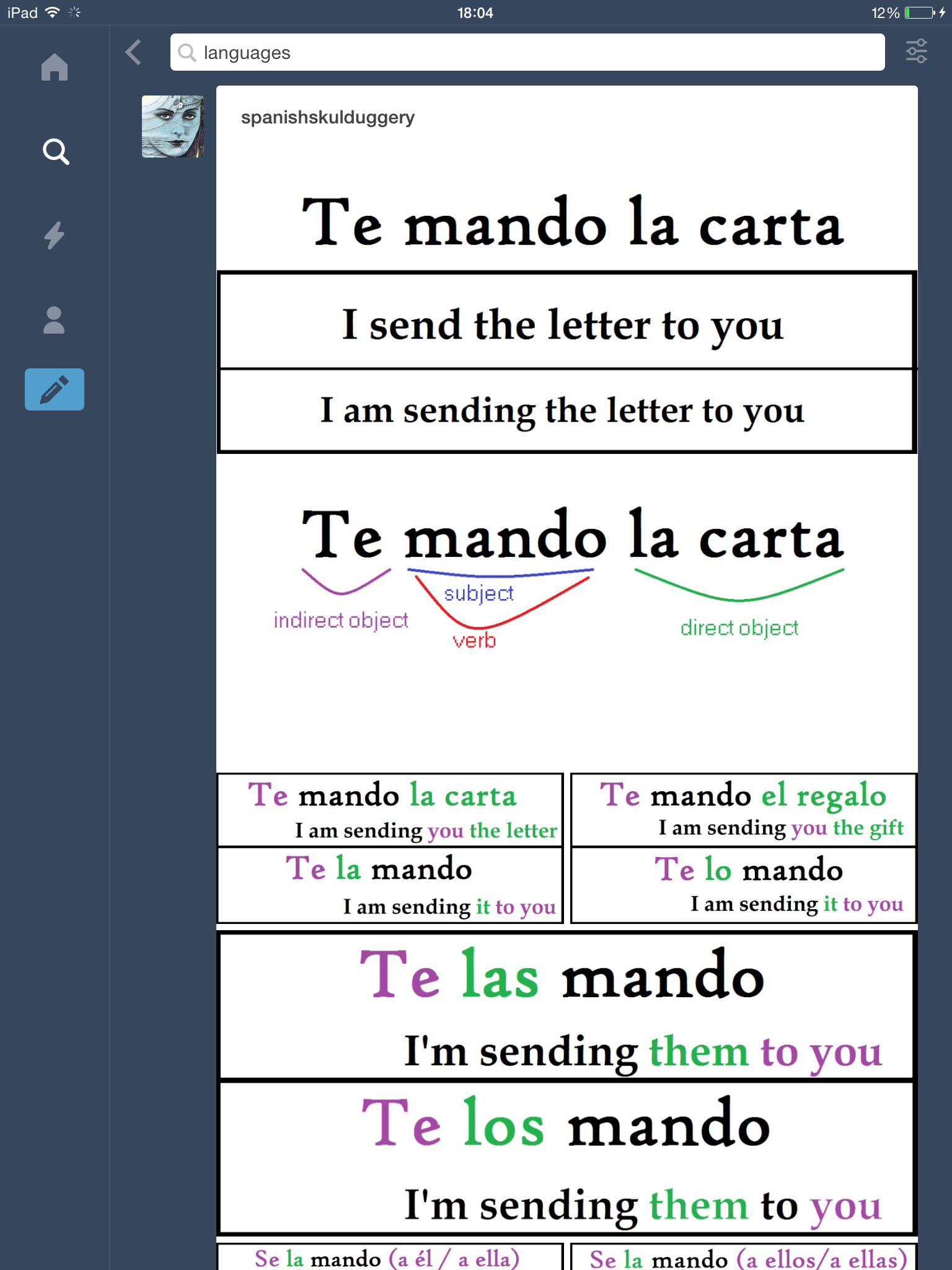As a language writer, it's part of my job to look out for new trends and developments in language learning. There are so many new apps released every day, and the language learning market is huge.
What makes a good language learning app?
Lanuage learning with an app only is a tall order for anyone, learner or teacher, and different users will look for different results. The following list is based on what I believe makes a good language learning experience, regardless of what the marketing of the app tells you about how it is going to make you fluent instantly.
The best apps:
- focus on doing one thing and doing it well, instead of claiming that they can teach you how to be awesome at listening, reading, speaking and writing AND grammar
- deliver on their promises
- keep your attention
- run well and focus on allowing you to learn instead of piling on features that only slow your phone or tablet's performance
- understands that you're often looking at the app on a small phone screen and you work with an on-screen keyboard
- are interesting, relevant and fun when it comes to their content
- encourage that addictive quality to keep you coming back and building good habits
Of course it's impossible for me to tell you all about the million language learning apps on the internet, but before I launch into a big dream list let's check out what is popular.
Language Learning Apps: What's Out There?
Here are the current multi-language bestsellers in the Google Play and Apple iOS stores (does anyone use Windows Mobile?):
Course-Style Apps
- Duolingo
Duolingo is unbeatable, and I've already covered why it's not perfect. Interestingly, Google lists this as a "brain training app", not a "language learning app".
- Mango Languages
Mango requires that you access it through an account that's linked with your school or public library. A fantastic language selection, cute interface and standard sentences to teach you the language basics.
- Babbel
Similar to most of the above, Babbel adds speech recognition to the useful sentences of Mango and the gamification of Mango. Claims to have "reinvented language learning" in the introduction. The result of reinvention? Learning through vocab-based recall learning with flashcards and games. I would recommend this over Duolingo just because its dialogues felt more useful and real.
Vocabulary and Memorisation Apps
- Memrise: The Ultimate Memorisation App
Memrise focuses on teaching through flashcards and spaced repetition, with user-sourced audio to accompany the words you're learning. Excellent for vocabulary training, but less effective for learning or practising sentences.
- Vocab Express
Mixing flashcards and old-school vocabulary lists, the strengths of Vocab Express lie in focusing on keeping things simple. There's a leaderboard for those who compete with classmates. User reviews do bring up some room for improvement when it comes to the keyboard layout and saving your progress.
- Flashcards+
This one has an Apple Watch integration and allows deck sharing.
- Lingualy
The Lingualy app aims to combine flashcards with what you read on your smartphone to help you look up words in news articles and save them for revision.
The Language App Wish List
If you're out there and you're making a language learning app, here's what I think it should be like. I don't expect the perfect language learning app to be released any time soon, but perhaps one or two of these features rings a bell and you can build it into yours?
Or even better: Do these apps exist already? Do you know about them? If yes, then please leave a comment and tell me all about them.
1) Polyglot Smartphone Keyboards
I really don't like having to change on-screen keyboards between all the languages I'm learning. I text in German and English, I want to practise French, and ultimately my aim right now is to use the Welsh I learn. So that's four languages, plus the emoji keyboard. On my iPhone, this means I spend a lifetime pressing that little world button and getting annoyed at autocorrect.
I'd love the app of my dreams to do more than switch off autocorrect and the keyboard, and instead give me a better keyboard changing experience.
2) Trivago For Dictionaries
Trivago is a hotel room search engine, similar to Kayak for flights or Indeed for jobs. I would be so happy if there was an app combining the great things about several dictionaries together. The accuracy of LEO with the authority of Oxford or Duden, combined with the real-life examples of Linguee or the versatility of Wordreference. Then throw in Forvo so we can pronounce it. Simply enter a word and choose where you would like to look it up to get the right information, a reliable translation, a pronunciation demo. How awesome would that be?!
3) Placement Tests at the Beginning
It's not easy to design a good placement test, which is why most apps don't do much more than asking you "What's your level?". Duolingo obviously approaches this as "test out of a skill", which is as close as I have seen to a really great placement test at the start. There is nothing, however, that compares to the thorough experience you get at the start of something like Rosetta Stone. But I think apps could do better, especially when working together with language test designers to create a placement test
4) Enhanced Reading
The Lingualy app I mentioned above has a really intesting idea in my opinion. Support when reading in a foreign language needs an arsenal of level-appropriate texts and a flashcard system that talks to the best flashcard apps out there. I dream of a Kindle dictionary that can look up the pronunciation of my word on Forvo and then add it to Memrise for me.
Reading in a foreign language is not about inventing more and more apps, but about connecting the best ones together.
5) Language Exchange + Flashcards
I think HelloTalk is an excellent take on language exchange, but on several occasions while using it I wanted to put what I learnt into Flashcards or into my notebook. The dream app would be able to help me out there and offer an integration with one of the great flashcard apps. This could be as simple as exporting a file.
6) Calendar Integration
One of the biggest challenges of language learning is committing to doing something every single day, and my dream app would help a learner out with the habit-forming challenge. There are some great apps out there that help with this, for example coach.me, but I've not seen a language-focused one.
I’d like to see a daily checklist, a scheduler or daily timed activities. No matter if this is for flashcards or spending 10 minutes chatting to people via language exchange, there's nothing like ticking a box to say "I did this!".
What's Your Perfect Language Learning App?
Now it's your turn! If you're a developer feeling inspired by one of these ideas, feel free to take them and turn them into...not cash, but a really fantastic language learning app.
If you're a language learner, what do you think about these ideas? Do you have a favourite app? Do you have dream features you'd love to see from it?
Leave your message in the comments below - I can't wait to hear what you recommend!




